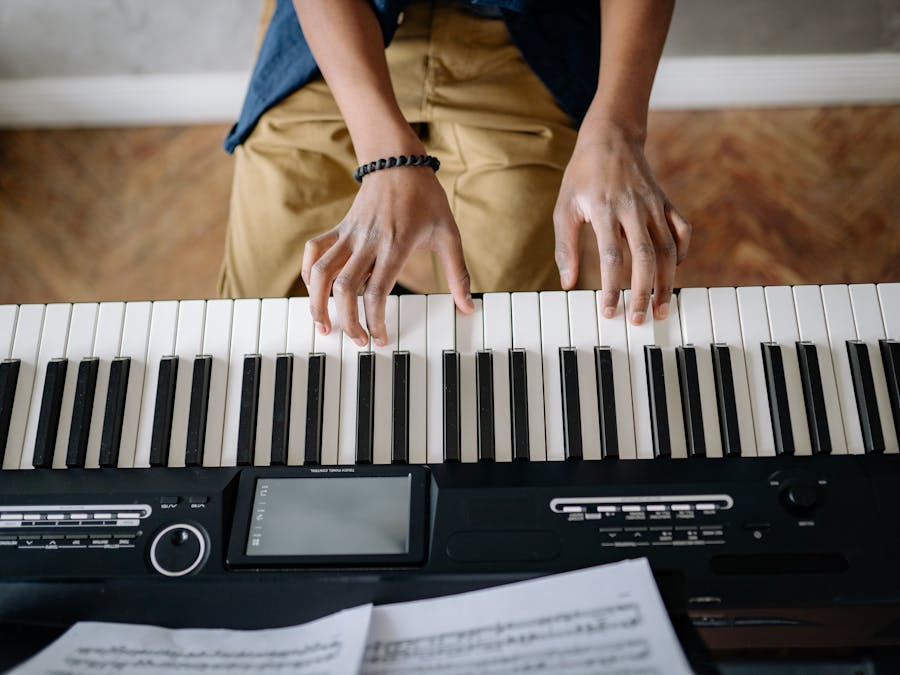 Piano Guidance
Piano Guidance
 Piano Guidance
Piano Guidance

 Photo: DS stories
Photo: DS stories
Tears and chills – or “tingles” – on hearing music are a physiological response which activates the parasympathetic nervous system, as well as the reward-related brain regions of the brain. Studies have shown that around 25% of the population experience this reaction to music.

The beginner student is someone who has played the piano for about six months. They know the notes of the musical alphabet and can find them on the...
Read More »
There are a total of 8 grades in the ABRSM piano exams, where grade 1 is the easiest and grade 8 is the hardest. Each grade tests you in the...
Read More »Music has the power to tug at the heartstrings, and evoking emotion is the main purpose of music – whether it’s joy or sadness, excitement or meditation. A certain melody or line of a song, a falling phrase, the delayed gratification of a resolved harmony – all these factors make music interesting, exciting, calming, pleasurable and moving.Tears and chills – or “tingles” – on hearing music are a physiological response which activates the parasympathetic nervous system, as well as the reward-related brain regions of the brain. Studies have shown that around 25% of the population experience this reaction to music. But it’s much more than a pure physiological response. Classical music in particular steers a mysterious path through our senses, triggering unexpected and powerful emotional responses, which sometimes result in tears – and not just tears of sadness.Tears flow spontaneously in response to a release of tension, perhaps at the end of a particularly engrossing performance. Certain pieces of music can remind us of past events, experiences and people, triggering memories and associated emotions. At other times, we may feel tearfully awestruck in the face of the greatness or sheer beauty of the music.This last response has a name – Stendhal Syndrome – and while the syndrome is more commonly associated with art, it can be applied equally to the powerful emotional reaction which music provokes.A psychosomatic disorder, Stendhal Syndrome, or hyperkulturemia, causes rapid heartbeat, dizziness, sweating, disorientation, fainting, tears and confusion when someone is looking at artwork (or hearing a piece of music) with which he or she connects emotionally on a profound level. The phenomenon, also called ‘Florence Syndrome’, is named after the French author Marie-Henri Beyle , who wrote under the pen-name of ‘Stendhal’. While visiting the Basilica of Santa Croce in Florence, he became overcome with emotion and noted his reactions:“I was in a sort of ecstasy, from the idea of being in Florence, close to the great men whose tombs I had seen. Absorbed in the contemplation of sublime beauty … I reached the point where one encounters celestial sensations … Everything spoke so vividly to my soul.”While there is some debate as to whether the syndrome actually exists, there is no doubt that music (and art and literature) can have a very profound effect on our emotional responses.Certain pieces are well-known tear-jerkers, including:

9 easy piano pieces to get you started on keys Beethoven: Für Elise. ... Debussy: Clair de lune. ... Mozart: Sonata No. ... J.S. ... Einaudi:...
Read More »
A lot of teachers and parents have the misconception that young kids can not read music and substitute other methods in order to get them playing...
Read More »
Kawai pianos offer a warmer, fuller quality of tone when compared to a normal piano built by Yamaha. This has made them the preferred choice of...
Read More »
Simply Piano: Membership Three months is the shortest duration, which costs $59.99 every three months until you cancel. To save money you could get...
Read More »
It is extraordinarily rare, with only 61 people in the world having been diagnosed with the condition as of 2021. ... Hyperthymesia Other names...
Read More »
Pianoforall is one of the most popular online piano courses online and has helped over 450,000 students around the world achieve their dream of playing beautiful piano for over a decade.
Learn More »
The first song on the list, “Hey Jude,” is the best place to start. It is slow and has accessible arrangements even for a complete beginner. Why is...
Read More »